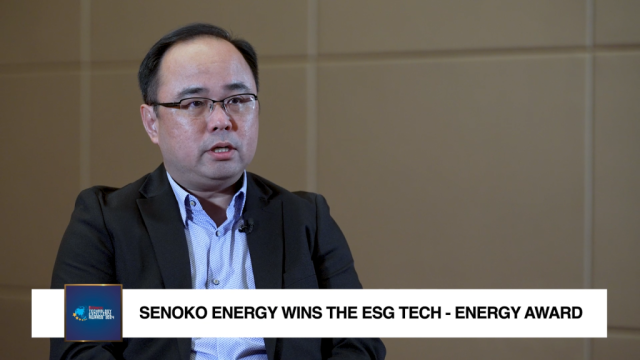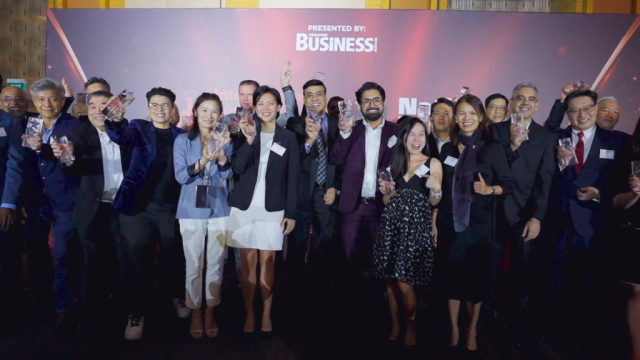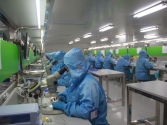
Singapore's co-working boom has no end in sight
There are around 110-120 operating flexible workspace centres islandwide, and leasing demand is poised to hit 550,000 square feet in 2018.
With Singapore easily being one of the most open markets in Asia Pacific for flexible workspace arrangements thanks to a thriving startup culture and the government’s support for innovation and enterprise, leasing demand is poised to hit 550,000 square feet in 2018 as a growing number of corporate identities are jumping in on the co-working bandwagon.
“The demand for co-working or flexible workspace - led initially by startups, freelancers and tech firms - has grown substantially since 2015 as large businesses embrace the sharing economy,” Colliers International Head of Office Services Duncan White told Singapore Business Review.
There are around 110-120 operating flexible workspace centres islandwide, with around three quarters situated in the CBD. The spaces occupy 3.9% of the premium and Grade-A office space or around 944,000 square feet of net lettable area, representing a 36% surge since 2016.
Also read: TripleOne Somerset secures tenant in co-working space firm IWG
Local and international operators alike are leaving no stone left unturned in rooting out the necessary space to develop co-working spaces amidst booming demand for alternative work experiences. Assets like retail podiums and grade-B office buildings may even be repositioned to make room for co-working occupiers amidst limited land bank in the lion city and secured exclusivity clauses, White noted.
The lion city’s rising office rents are similarly poised to fuel demand for coworking strategies with Grade A office space prices extending its climb at 1.3% QoQ in Q1 or at a monthly rate of $9.06 per sq ft.
“Additionally,Singapore’s high rents will continue to stoke the adoption of coworking strategies due to sustained cost advantages,” said Sigrid Zialcita, Managing Director, Research, Asia Pacific for Cushman and Wakefield. “More and more, cost containment strategies will necessitate incorporating flexible working arrangements to manage real estate footprint.”
Also read: CBD rent hikes could lure tenants to fringe areas
Big players enter the fray
To avoid being outpaced, Singapore’s blue chip property developers are also jumping in on the co-working trend, observed Zialcita, with Mapletree Investments unveiling its coworking space called Coqoons, CapitaLand launching its own brand Flexi Suites. Keppel Land also established its own coworking brand Kloud whilst Ascendas-Singbridge’s has thebridge as its flexible workspace solution.
“Establishing their own coworking offerings serves to preserve its revenue base rather than risk a seepage which will happen if a tenant bases part of its operations at a competitor’s coworking space,” she pointed out.
As a growing number of operators aim to cash in on the heated co-working trend and jostle for market share, players are dedicating energy and resources to differentiating their concepts, space design, as well as the communities they support.
Also read: Inside WeWork's first Singapore space
For instance, there is Treehaus which is Singapore’s first shared office with child-minding facilities. Paperwork at National Design Centre is similarly branding itself as the designer’s co-creation space boasting Virtual Reality equipment to provide tenants with 360-degree experience of how a design project will look like upon completion, according to Ong Choon Fah, CEO and Head of Research & Consulting at Edmund Tie & Company
Multinational firms are also making dedicated efforts to redesign their workplaces, Ong noted. Insurance firm Prudential Singapore's new office, PRU WorkPlayce, features an open amphitheatre and collaborative work zone for employees. Unilever’s Level 3 in Mapletree Business City also serves as a base of operations for startups as well as a space where teams can visit and connect with companies and ideas they find interesting.
Some flexible workspace examples in the financial services industry include the LumenLab, a 7,800-sf innovation center by MetLife and OCBC’s The Open Vault, a 2,400-sf fintech innovation center by OCBC bank.
“We can expect to see continued evolution of differentiated services and niches offered within the physical space, the membership community and also the tech platforms offered by the operators,” White forecasted.
Coworking spaces are also sprouting up in retail, noted Zialcita, as Justco’s latest space in Marina Square is the first to anchor a retail mall whilst Wework will also be unveiling a space in Funan’s retail component.
Against a backdrop of strong government support and eager market takeup, the co-working trend in Singapore shows no sign of slowing down with total co-working stock driving 15% of new demand for premium office spaces in the island last year. Around 11 spaces are expected to be rolled out within the year or 2019, added Ong, as the market matures toward consolidation and larger players are easing smaller operators through M&A’s such as when WeWork acquired NakedHub.
“What started out as a disruptor and an alternative to traditional offices is now a fundamental part of the commercial real estate market,” said White.
























 Advertise
Advertise










